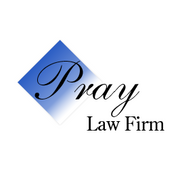
When filing bankruptcy, your goal is to have a fresh financial slate from which to start again. But the types of debt you carry will determine how those outstanding balances are resolved; some kinds of debt can be discharged, while others can't. Below, the three types of debt seen in bankruptcy cases are explored in more detail.
What Are the Types of Debt in Bankruptcy Cases?
1. Secured Debt
Secured debt is any debt that is secured by an item you own. For instance, a car loan is considered secured because you have possession of the vehicle you're paying off; if you renege on your agreement to pay, your lender can repossess your car. In this case, the car provides the lender the security that you will pay what you owe. If a lien is placed on an item you own, it is considered involuntarily secured debt, meaning you did not initially agree to the lien as part of your loan, but your failure to meet payment obligations from other sources (the IRS, debt collectors, etc.) made it necessary.
2. Priority Debts
Priority debts are those to which the courts give preferential treatment. They identify certain outstanding balances as being more crucial and, therefore, most in need of resolution. Child support payments, money owed to employees, and the administrative costs of the bankruptcy itself are all generally considered priority debts.
3. Unsecured Debt
 A balance that is neither a priority debt nor a debt secured by another item you own will likely fall into the category of unsecured debt. Most debts in bankruptcy cases are unsecured; common examples include credit card balances, past-due medical bills, and back-rent. Though most debt of this kind can be discharged in bankruptcy, there are exceptions to the rule; student loans, for example, are unsecured but not dischargeable in bankruptcy.
A balance that is neither a priority debt nor a debt secured by another item you own will likely fall into the category of unsecured debt. Most debts in bankruptcy cases are unsecured; common examples include credit card balances, past-due medical bills, and back-rent. Though most debt of this kind can be discharged in bankruptcy, there are exceptions to the rule; student loans, for example, are unsecured but not dischargeable in bankruptcy.
To see how your debts will be treated in bankruptcy, contact Pray Law Firm PA. Since 1995, they have represented bankruptcy clients throughout the North Little Rock, AR, region. Call (501) 771-7733 or message them on Facebook to schedule an appointment with a bankruptcy attorney today. Visit them online to browse their helpful FAQ and learn more about their services.
About the Business
(3 reviews)
Have a question? Ask the experts!
Send your question

